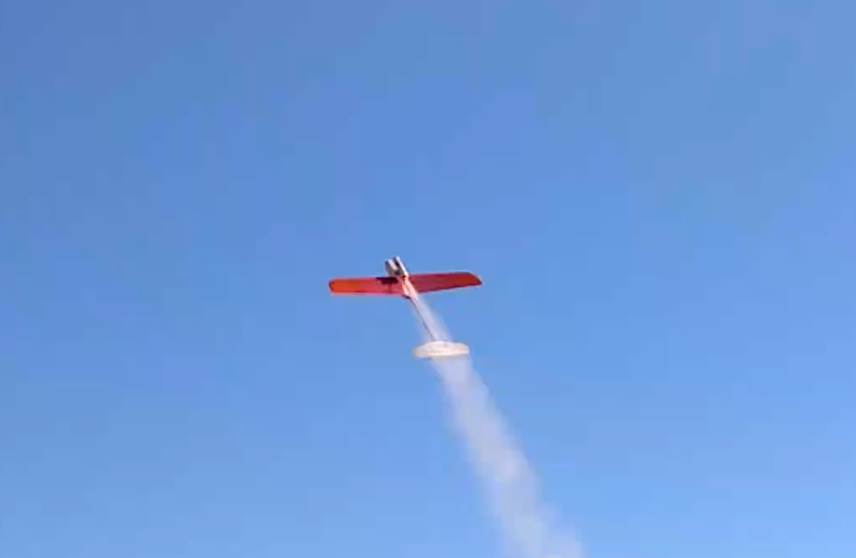We have now finished the first composite Red Shift rocket glider and it has completed numerous successful flights. This model has fully lived up to expectations with a very impressive glide and excellent structural strength. It has good control authority throughout its flight envelope.
This model features full composite construction. The wings are vacuum bagged with xps foam cores, fiberglass skins, carbon spars, and live hinges. The ZoneV2 airfoil was used on all of the wings we’ve made so far, but we may switch to the StanfoilBE2 in the future if it demonstrates an improvement in glide performance. Weight is 6.5 g per wing panel.

The model features a bolt-on rocket pod so that it can be converted very quickly to a pure glider. The tail surfaces, like the wings, are vacuum bagged. In this case, thin balsa is used for the cores. The fuselage pod is balsa sealed in fiberglass for maximum strength. The wrapped carbon tube we chose for the boom is incredibly stiff, but so lightweight that the only ballast you need is a 1s 350 lipo in the nose!

Controls are ailerons and elevator. There is enough room in the fuselage pod for three servos so those who wish can program the model for flapperons. The elevator is driven by a spring/string control which provides excellent response without any hint of flutter at engines up to C size. The model thermals easily in light air and is fully aerobatic. The speed range really is superb with an incredibly low stall speed.

We decided to mix things up a bit more and provide some more options. You may have noticed the blunt nose on this model. The reason for this design is that it provides an excellent place to mount a 5 gram 1105 outrunner!

We chose the inexpensive and very well built Eachine 4000 kv motor on an aluminum sheet motor mount which screws into the sides of the pod for quick and easy installation. Hobbyking makes a very nice 4.4×3.1 folding prop which, with a few minor modifications to remove excess material, fits nicely on this motor. It was necessary to grind a flat in the motor’s shaft to ensure proper retention since it is made for a larger shaft than what is used on this motor. With this modification the hub screws on securely with grub screws and shows no imbalance at full throttle.
E-flite’s 5A esc is tiny enough to fit in the pod with a Dinogy 2s 200 Lipo, Spectrum AR6110e micro receiver, and two Turnigy 3.5 g servos. The model does require 4 g of lead on the rudder to balance with these extras, but it still flies excellently. The result is a tiny backyard warmliner.

The model does not have unlimited vertical as its thrust to weight ratio is right around 1:1, but it still has a superb climb rate. The roll rate is extremely high, and the model does fly reasonably well inverted. More importantly, even light, patchy thermals will yield long flights. This model is extremely responsive in lift–if you fly into lift you’ll know it!

J&H Aerospace is very pleased with this new model and we look forward to offering it for production as the smallest warmliner available and the only ARF rocket glider on the market. We plan to offer this model almost ready to fly with minimal assembly required. You’ll glue the boom in place, install your servos, right the control linkages, and be ready for flight. The airframe will cost roughly $150 USD.
“So can I see it fly?” Absolutely! Here is a compilation of flight test footage we put together. Yes, it’s winter here and we had to maiden this model in wind strong enough to really test the wind penetration of this model. Hopefully we’ll get some better weather in the future in which this model can really show off.
